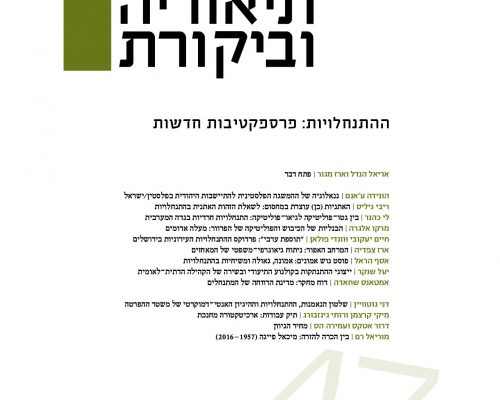האתניות (כן) עוצרת במחסום: לשאלת הזהות האתנית בהתנחלויות
ריבי גיליס
הזהות האתנית של המתנחלים זוכה לרוב להתעלמות או לכל היותר לאזכורים אגביים במחקר ובשיח הציבורי. דחיקה זו של שאלת הזהות האתנית של המתנחלים לשולי השיח הציבורי והמחקרי תמוהה לאור נוכחותה הגלויה בהקשר של פרויקט ההתנחלויות. מאמר זה מראה כי ספרות המחקר נשענת על תפיסה מהותנית של הקטגוריות "דת" ו"מעמד" – תפיסה הדוחקת הצדה את הדיון שהיה יכול להתפתח בשאלת הזהות האתנית בהתנחלויות. דרך סקירה של העיתון נקודה המאמר יחשוף את הצמתים שבהם נפגשות הזהויות הדתיות והמעמדיות של המתנחלים ויציג בסיס אמפירי לדיון על זהותם האתנית של המתנחלים, בסיס שהמחקר על אודות המתנחלים החמיץ לאורך השנים. אטען כי המקור להחמצה הזו הוא בתפיסה פרדיגמטית של הקו הירוק המייצרת הבחנה בין "אתניות" ל"כיבוש". הבחנה זו לא רק מאשררת את אופני האתניזציה בישראל אלא גם חושפת את העובדה ששדה המחקר הביקורתי כלוא בכלוב החשיבה הלאומי-יהודי.


